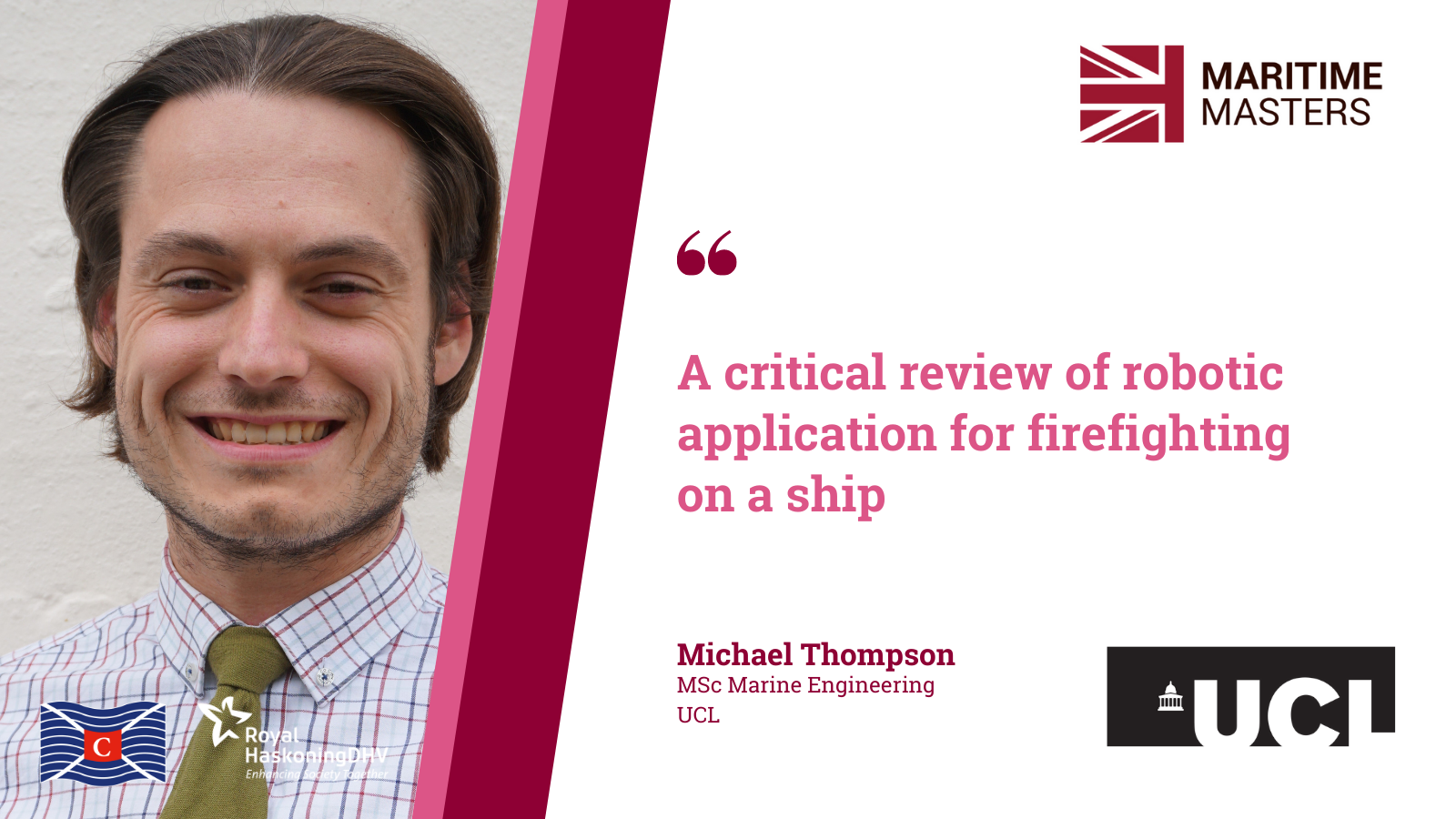Michael Thompson

Biography:
My name is Michael Thompson and I am a Royal Navy Marine Engineering Officer completing the Marine Engineering MSc at UCL. This will allow me to develop my engineering knowledge and further progress my understanding gained during my undergraduate degree. It is also an opportunity to consolidate my practical experiences gained from serving seven years in the Royal Navy onboard Nuclear Submarines.
Prior to attending UCL, I completed a three year operational assignment on HMS Triumph. During this time I was also seconded to both HMS Trenchant and HMS Talent. This three year period was split between operational deployments, pre-operational training, crew supported maintenance periods and deep dockyard maintenance periods. This gave me a wide exposure to many facets of being an Engineering Officer onboard a Nuclear Submarine.
Introduction to research:
The aim of this investigation is to review robotic systems and determine to what extent, if any, their ability to conduct firefighting duties on ships. The outcome will be a critical review of their abilities and an assessment of how they can manage a hypothetical scenario.
In order to fully consider the applicability of Robotics for firefighting on board a warship, two key areas have been identified that must be investigated. Firstly the robots themselves and what range would be available. The other is the environment they are required to operate in.
To understand the Robots, an investigation into current systems and their uses will be conducted. In order to understand the environment in which the robot is required to operate in, an experimental compartment will be considered and hazards in that environment will be reviewed. A question that will run throughout is the preferred outcome of the designing of a robot that can operate in a warship or designing a ship so robotic firefighting can be achieved.
The experimental scenario has been generated from liaison with Warsash Maritime Training Centre. A site visit was conducted to their fire training facility to gain an understanding of the challenges of fighting a fire on a warship and to develop a hypothetical fire scenario that can be used to assess that ability of robots and robotic systems.
An area of robotics that is of particular interest is the use of swarm robots for forest fires and the transfer of these skills for fighting fires on ships. Static robots will also be looked at with the aim of developing “smart fixed systems”.
What is your interest in or the practical applications of this research?
During my time on HMS Trenchant in 2017 and HMS Talent in 2018 I supported their 12 week operational sea training prior to operational deployments. This process involves a gruelling 2 week safety training phase where experienced teams come onboard and put the crews damage control skills to the test. This period was both challenging and rewarding and my firefighting knowledge was accelerated through daily training scenarios. I especially enjoyed the challenges associated with firefighting and the principles that underpin it. During my undergraduate degree I completed a module of applied robotic control which included the operation of static robots for basic tasks. The control systems and the mechanisms employed were very interesting and the scope to couple this field with firefighting was highly attractive and something that I am sure will be employed in future ships and submarines.
The employment of robots for firefighting as opposed to humans is a vital development to reduce the loss of life onboard warships and countless lives could be saved by utilising technology that is already readily available but not effectively implemented.
Why did you choose maritime as your area of study and research?
A number of factors have meant my research has fallen into the maritime industry. Being a Marine Engineering Officer in the Royal Navy, my general interest and enthusiasm falls within this field. The unique engineering challenges associated with working in this environment enthral me and the isolated nature of the work makes problem solving in this environment especially challenging and demanding. The inability to pick up a phone and ring for help means a unique understanding of the engineering systems and how they impact one another is extremely interesting and keeps the job engaging and enjoyable.
I am motivated to positively contribute to this field which I am passionate about, particularly in the area of developing innovative safety systems to protect both the Maritime hardware, and the people who work on them.
